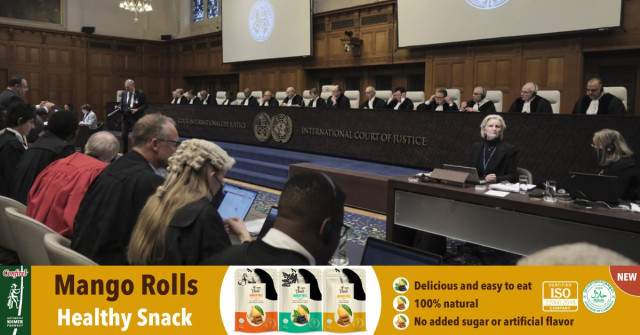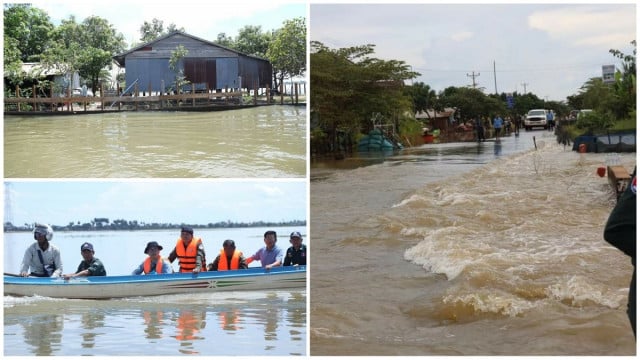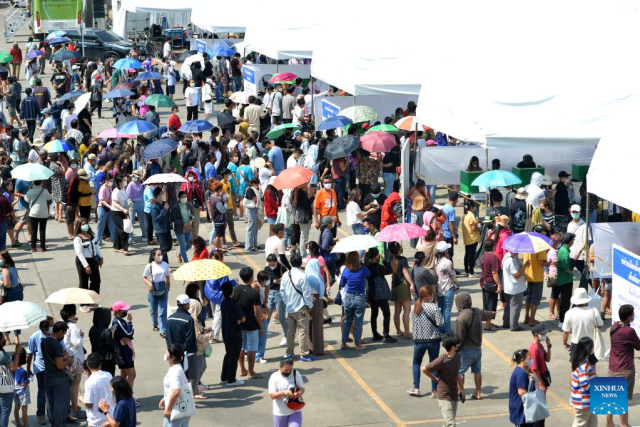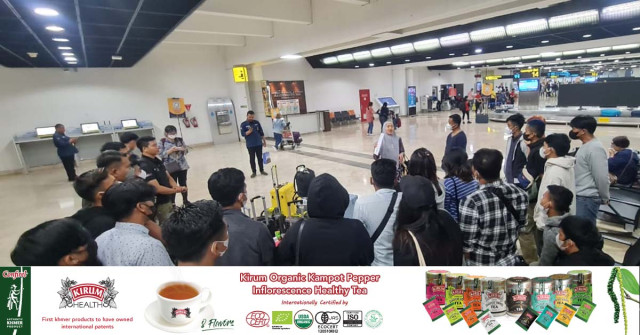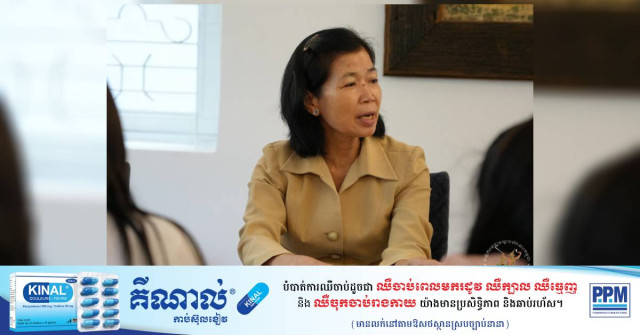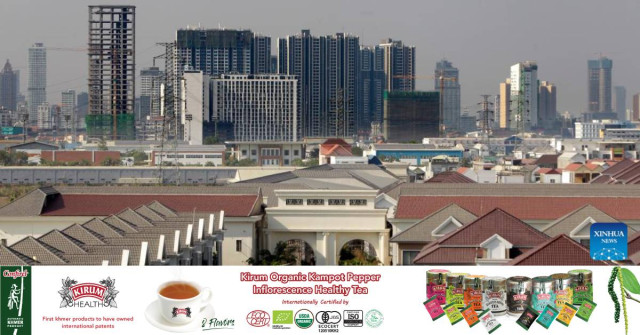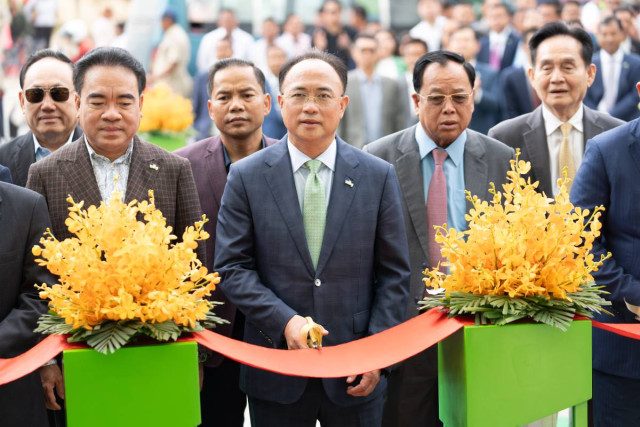Agriculture Student Turned to Consultancy to Push for Healthy Farming
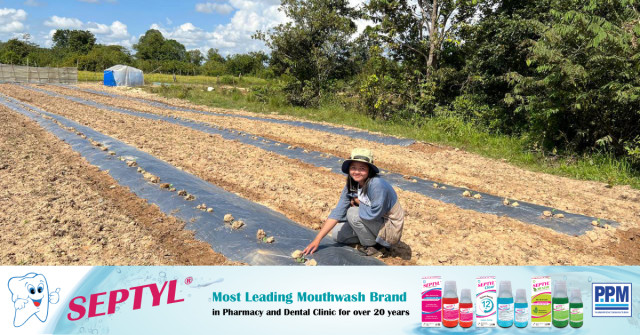
- By Chhuon Kongieng
- January 5, 2024 2:29 PM
PHNOM PENH – In just a few years, Chhoeun Chhailin has gone from agricultural student to agricultural advisor, encouraging communities in Oddar Meanchey province to modernize their production techniques. She aims to bring local farmers into a new era.
Born to a farmer’s family in Oddar Meanchey, Chhailin, now 26, developed a passion for agriculture when she was young, taking her parents as an inspiration. She loves being surrounded by nature and understanding how farming and agriculture work, as they have been the main source of her family’s income.
After graduating from high school in 2016, Chhailin received a scholarship to pursue a bachelor's degree in Plant Science at Sakon Nakhon Rajabhat University in Thailand. At the time, she also worked as a research assistant in agriculture at the same university.
In October 2022, she came back to Cambodia and joined her uncle’s company, Ta Yum Seedling Soil, which provides seedling soil to farmers and garden enthusiasts in Phnom Penh. When she arrived in the family business, the company had been running for seven years.
Chhailin used her knowledge of Plant Science to help update the quality level of the seedling soil by using natural raw materials while keeping its price reasonable for farmers. She also started to offer consultancy services to farmers.
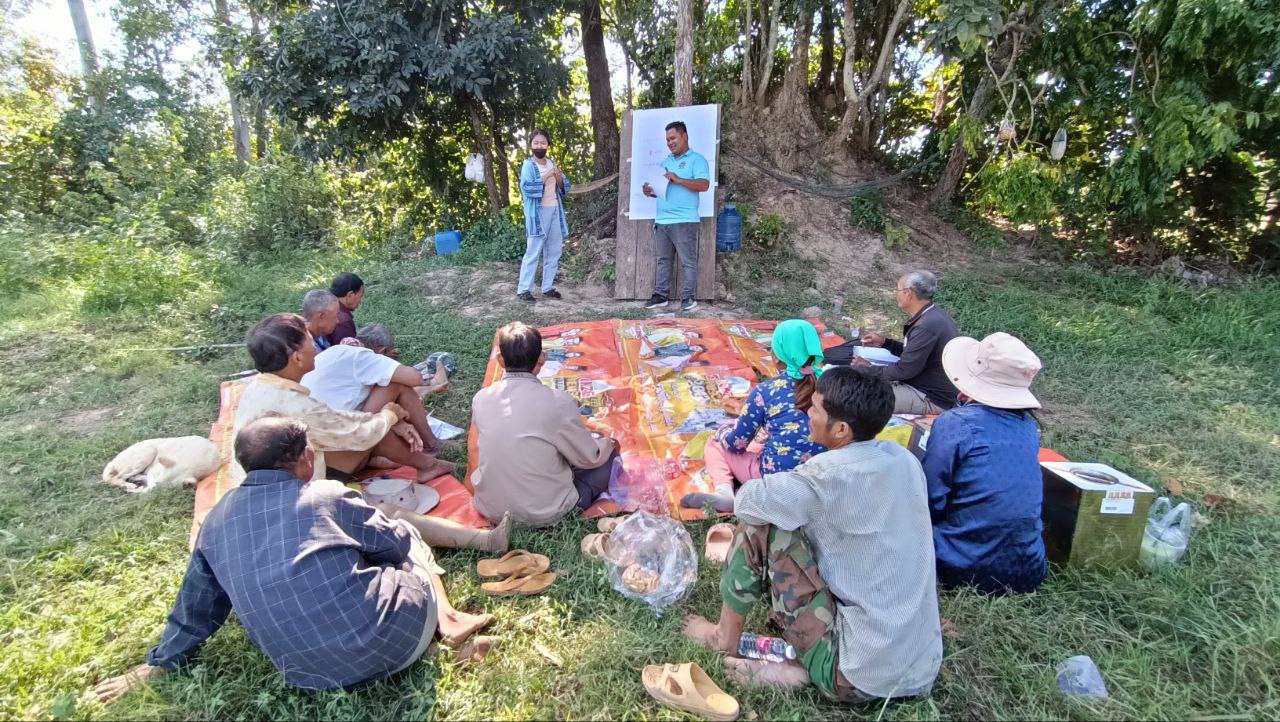
Helping local farmers
Focusing on farmers located in her home province, Oddar Meanchey, she first monitored their practices before starting to teach them modern and climate-resilient agriculture techniques. She also guided them on how to use pesticides and fertilizers effectively, while encouraging them to turn away from chemical products and use natural fertilizers instead.
“It is to ensure farmers’ and consumers’ safety,” she said.
With her business focusing on seedling soil, Chhailin said that she helps farmers grow healthy seedlings, protecting them from root rot, being resistant to climate change, and using less fertilizer. She aims to keep the price accessible to farmers so they can make profits from the company’s products.
Chhailin added that, through her consultancy work, farmers shared their day-to-day operating problems with her, enabling her to find customized solutions and improve their yields.
Challenges
After two years of working alongside her uncle, Chhailin said their number one challenge for farmers is to find the appropriate seedling soil that is both of good quality and affordable.
“If farmers buy seedling soil from other sellers, [the quality varies a lot] and seeds sometimes grow unevenly,” she said. “Other seedling soil products are of high quality, but they are too expensive and not suitable for farmers.”
As for her company, she said her main concerns are the lack of workforce and budget to keep growing. However, the family business is supported by the Integrated Development Environment (IDE), Cambodia Horticulture Advancing Income and Nutrition (Chain project), and Oddar Meanchey’s Agriculture Department.
The combined support provides them with some budget, materials such as fertilizers, and tools such as greenhouses, solar panels, plastic sheetings to prevent grass, and a fertilizer mixer machine.
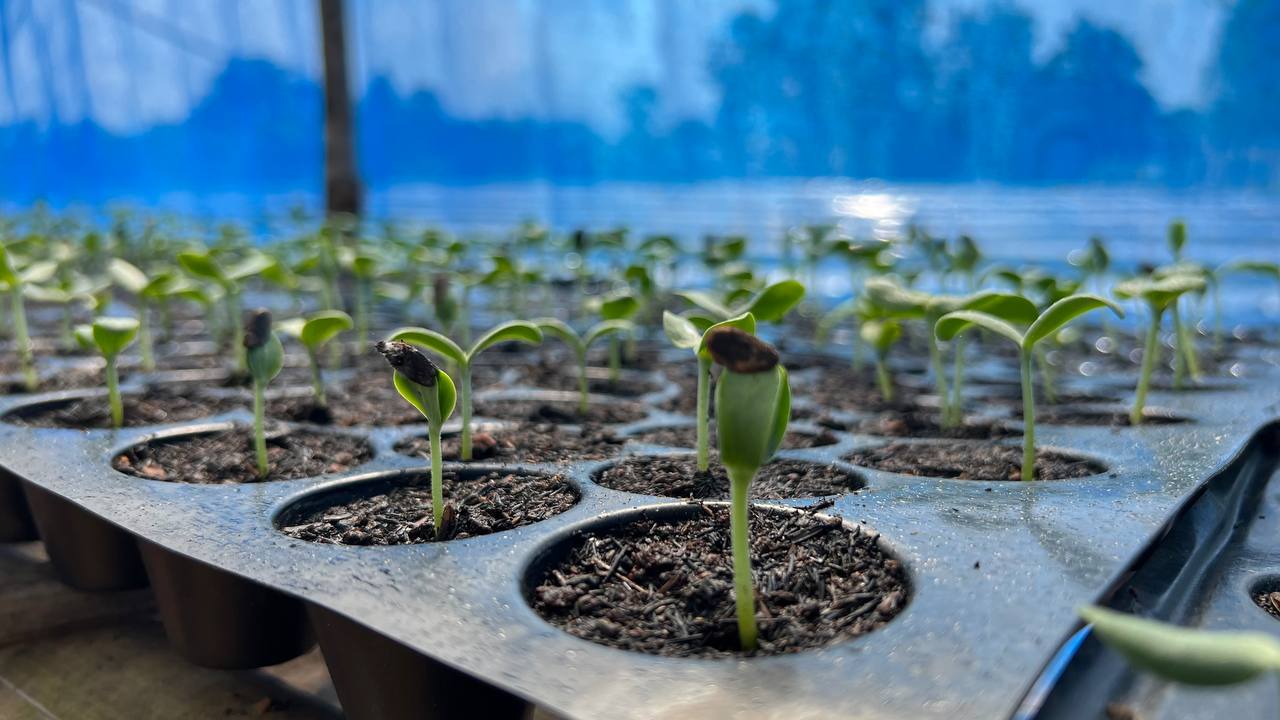
A solution to increase farming naturally
Her experience in agriculture convinced her that customers have a role to play when it comes to supporting local farmers, and especially those interested in organic production.
“I want the public to support Cambodian entrepreneurs and local products because they produce locally sourced raw materials, which motivates farmers to farm naturally. If you do not support them, no one will come to buy their products. This doesn’t help their career move forward.”
It also contributes to reducing climate change and protecting the environment by reducing the use of fertilizers or chemicals.
To initiate a change in Cambodia’s agricultural sector, she’s about to launch a new project focusing on climate-resilient agriculture for farmers between 25 and 50 years old.
Her project was selected as one of the eight outstanding business plans and was granted $5,000 from the Nurture Project for implementation over 10 months in four target provinces including Battambang, Banteay Meanchey, Oddar Meanchey, and Preah Vihear in 2024.
As a consultant in modern farming, Chhailin wishes to see the agricultural sector grow in Cambodia, starting with farmers understanding the use of fertilizers and pesticides to reduce misusage that harms farmers, consumers, animals, and the environment.
She also wants farmers to learn about modern agriculture techniques and to better understand the impacts of climate change on farming.
She wants farmers to conduct agriculture according to customer requirements as well as national and international standards in safe agriculture (GAP), good agricultural practices, and organic agriculture to give farmers and consumers quality, quantity, and value.
She advised and encouraged agriculture students.
“Show goodwill and value the agricultural work we do, so that it benefits us, our farmers and our country,” she said.






